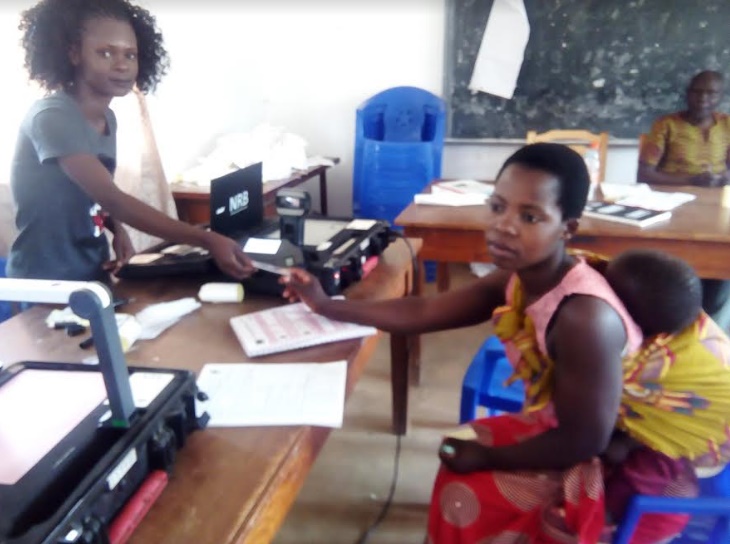DPP insists that the National Registration Bureau favouring central region in registration
Opposition Democratic Progressive Party (DPP) is accusing the National Registration Bureau (NRB) of favouring the central region in the registration of people for national IDs.

Director of Elections in the DPP Gladys Ganda alleges this is a form of rigging ahead of the 2025 polls which will require people with national IDs only to register and vote.
Ganda alleged that NRB in some parts of central region is registering new registrants below the required age of 16.
“We have noted that the growth of new registrants in Lilongwe, Salima and other central region districts is not marching with their own population growth, there is so much growth of new registrants in these districts,” alleges Ganda.
She said the DPP and other political parties have asked NRB to provide them with figures of people who have registered for National ID’s so that they scrutinise them.
Ganda emphasized on the need for NRB to consider extending National ID registration exercise in some some parts of the country including Nsanje where the exercise was marred by logistical challenges.
She adds NRB must consider extending registration period due to some days they missed during National ID registration exercise in some parts of the country.
“We have noted that some people have failed to take part in the exercise due to faulty equipments and other logistical hiccups,” she said.
She has however indicated that should authorities fail to address the bottlenecks the party will push for the amendment of the legislations that provides for the issuance of National ID for one to register for elections.
But Principal Secretary for the National Registration Bureau (NRB), Mphatso Sambo, has refuted the allegations.
He said the registration exercise was going on smoothly.
Sambo said Malawi has attained the highest global ranking among nations undertaking registration, boasting a registration rate of 75 percent.
He indicated that the Bureau is committed to promptly assisting those requiring registration, with intentions to establish service centers in all traditional authority headquarters for expedited citizen support.
Sambo underscored the Bureau’s mandate to execute registration nationwide, acknowledging the steadfast backing of the Malawian government in facilitating the operations of the National Registration Bureau.
“In the spirit of transparency and accountability, the Bureau consistently engages diverse stakeholders to provide insights into its operations” Sambo Said
While giving an overview on ID registration, Acting Chief Registration Officer responsible for IDs, Mbawaka Mwakhwawa, provided an update on the Citizenship registration exercise, revealing that the Bureau has conducted mass registration from 2016 to 2023, with some individuals yet to be registered due to various challenges.
He stated that currently, the Bureau is undertaking a Mop Up Exercise to finalise the registration process, showcasing commendable performance throughout these exercises.
It was revealed that 12.3 million individuals aged 16 and above have been documented.
Furthermore, Mwakhwawa pointed out that the current projections from the National Statistics Office and NRB indicate a significantly high population in terms of registration in Lilongwe, with Likoma below the list.
Chief Registration Registration responsible for Civil Registration and Vital Statistics, Rhoderic Langwe, stated that 3.5 million children have been registered since the inception of the exercise.
“Despite these efforts, a substantial gap remains due to unregistered individuals” Langwe said
He reiterated the commitment of the National Registration Bureau to ensuring the registration of every Malawian.
Langwe emphasised that through the issuance of birth and death certificates, the government can enrich its database by recording causes of death, aiding in identifying prevalent diseases, and enhancing service delivery while supporting research initiatives.
Follow and Subscribe Nyasa TV :

